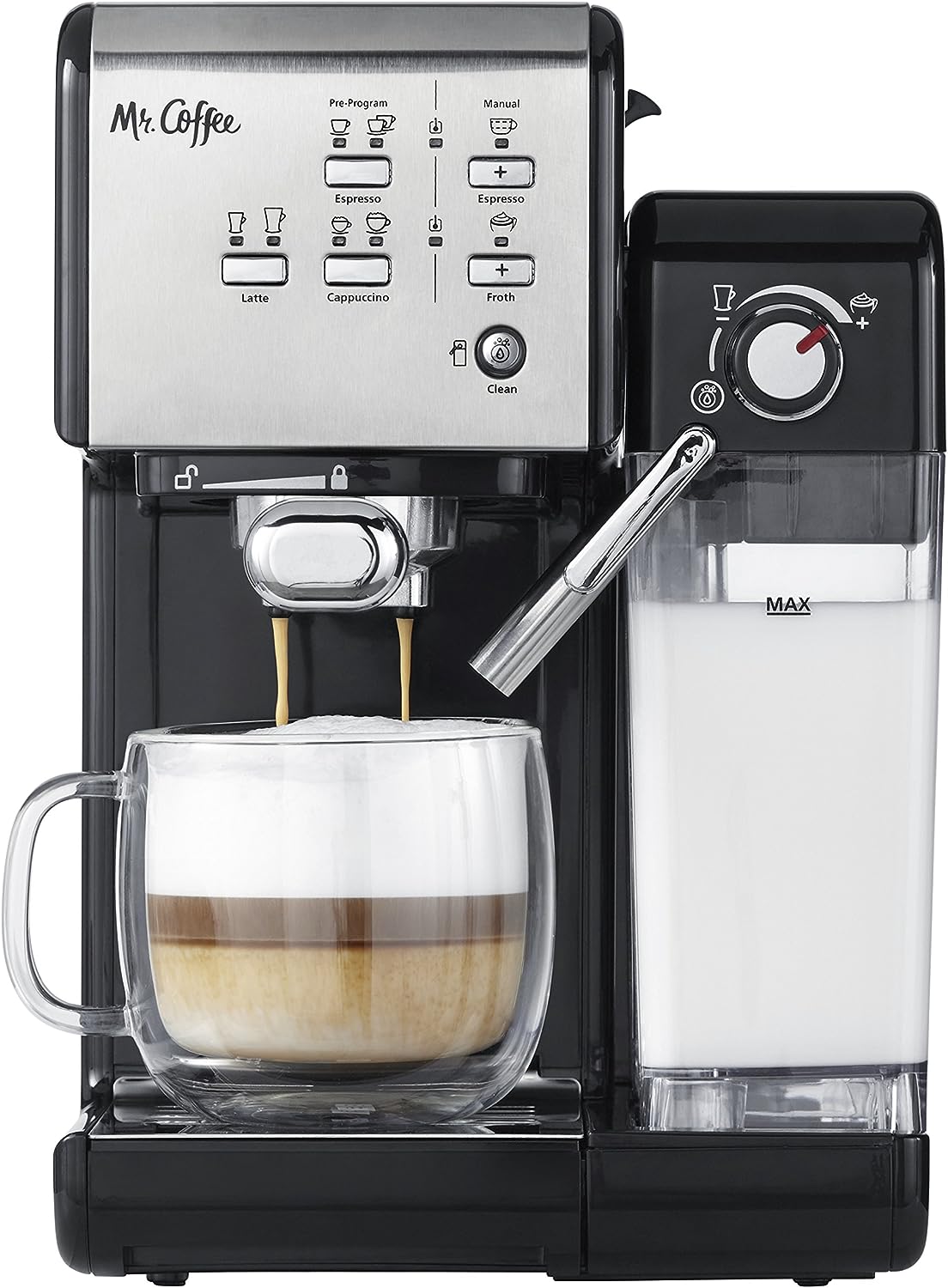Have you ever wondered if your daily coffee habit could be packing on the pounds? You’re not alone; as a fellow coffee lover, I’ve had the same concern. After researching and sifting through numerous studies, it appears there’s some truth to this notion – consuming caffeine in excess or sugar-laden coffees can indeed contribute to weight gain! This blog will unpack the connection between coffee consumption and unwanted weight gain while providing handy tips for enjoying your favorite brew without compromising your waistline.
Ready for the brewing facts?
Key Takeaways
- Consuming high-calorie additives and sugar-laden coffees can contribute to weight gain.
- Sugar substitutes in coffee may stimulate appetite and increase cravings for sweet foods, leading to overeating and weight gain.
- Lack of quality sleep caused by caffeine intake can disrupt hormones that regulate appetite and metabolism, potentially contributing to weight gain.
- Opting for black coffee or lightening it up with non-fat milk and natural sweeteners is a healthier choice for managing weight while still enjoying your favorite brew.
How Coffee Can Contribute to Weight Gain
Coffee can contribute to weight gain through the inclusion of high-calorie additives and the impact of sugar substitutes on appetite.
High-calorie additives
Excess cream, whole milk, and sugary syrups are some of the biggest culprits in turning a healthy cup of coffee into a high-calorie nightmare. If you’re not careful with these tempting add-ins, your morning brew could easily pack as many calories as a dessert.
Let’s consider flavored syrups that might seem harmless but can contain up to 20 grams of sugar per serving! And let’s not even get started on whipped cream; it piles on extra fat and sugar which contributes directly to weight gain.
Decorating your daily pick-me-up with these indulgences doesn’t just disrupt your waistline either. It also masks the actual taste of the coffee itself – something no true coffee lover wants.
Enjoying black coffee or simply lightening it up with non-fat milk or a small amount of natural sweeteners is an excellent way forward for those wanting to control their weight without giving up their beloved java fix.
Impact of sugar Substitutes on appetite
One important consideration when it comes to coffee and weight gain is the impact of sugar substitutes on appetite. Many people choose to add artificial sweeteners or flavored syrups to their coffee in order to enhance its taste without adding a lot of calories.
However, research suggests that these sugar substitutes may actually stimulate your appetite and increase your cravings for sweet foods. This can lead to consuming more calories throughout the day, ultimately contributing to weight gain.
So, if you’re trying to manage your weight, it’s best to limit or avoid using sugar substitutes in your coffee and opt for natural alternatives like cinnamon or vanilla extract instead.
It’s worth noting that caffeine itself has been shown to have a minimal effect on appetite suppression or stimulation. However, when combined with high-calorie additives like sugar and creamers, the overall calorie content of your coffee increases significantly.
Effect on sleep
Drinking coffee can have a significant impact on your sleep. The caffeine in coffee is a stimulant that can keep you awake, making it harder to fall asleep and stay asleep throughout the night.
Lack of quality sleep has been linked to weight gain because it disrupts key hormones that regulate appetite and metabolism. When we don’t get enough sleep, our bodies produce more ghrelin, the hunger hormone, and less leptin, the hormone that signals when we’re full.
This imbalance can lead to increased cravings for high-calorie foods and overeating, ultimately contributing to weight gain. So if you’re having trouble sleeping or notice changes in your sleep patterns after drinking coffee, consider cutting back or switching to decaffeinated options to support healthy rest and overall weight management.
Using coffee as a meal replacement
When it comes to using coffee as a meal replacement, it’s important to consider the potential impact on weight. While coffee itself contains very few calories, the problem lies in what we add to our cup of joe.
Those flavored syrups, sugary creamers, and whipped toppings can quickly turn a simple cup of coffee into a high-calorie beverage that replaces a nutritious meal. This can contribute to weight gain over time.
Instead, try opting for black coffee or adding just a splash of milk or a non-dairy alternative for some creaminess without the extra calories. By making more mindful choices with your coffee additives, you can still enjoy your favorite brew while better managing your weight.
Managing Coffee Consumption for Weight Loss
To effectively manage coffee consumption for weight loss, it’s important to limit added sweeteners, be mindful of additives, make coffee at home, try black coffee, and rethink your usual coffee orders.
Want to learn more about how these strategies can help you shed those extra pounds? Keep reading!
Limiting added sweeteners
When it comes to managing coffee consumption for weight loss, one important aspect is limiting added sweeteners. While a dash of sugar or flavored syrup may seem innocent enough, these extra calories can add up quickly.
Just one teaspoon of sugar contains about 16 calories, and if you’re adding multiple teaspoons to your coffee each day, those calories can start to make a difference in your overall calorie intake.
Opting for natural sweeteners like Stevia or cutting back on the amount of sugar you use can help control your calorie intake while still satisfying your sweet tooth.
Furthermore, being mindful of additives is crucial when it comes to maintaining a healthy weight. Many coffee drinks come with high-calorie toppings such as whipped cream and chocolate drizzle that not only increase the calorie count but also contribute to weight gain over time.
Choosing simpler options like cinnamon or cocoa powder as flavorings can help keep those unnecessary calories at bay.
As a coffee lover myself, I’ve found that making my own coffee at home has been beneficial for my weight loss journey. Not only does this save money in the long run, but it also gives me full control over what goes into my cup.
By using quality beans and brewing methods tailored to my taste preferences, I can enjoy delicious coffee without worrying about excess sugars or unhealthy additives.
Making the switch to black coffee has also played a significant role in managing my weight effectively. Black coffee contains virtually no calories on its own and provides a caffeine boost without any additional additions that could hinder progress toward shedding unwanted pounds.
Being mindful of additives
When it comes to enjoying your daily cup of coffee, it’s important to be mindful of the additives you choose. While a plain black coffee contains very few calories and won’t promote weight gain, adding high-calorie extras like flavored syrups, whipped cream, or sugary sweeteners can quickly turn your favorite beverage into a calorie bomb.
These extras not only contribute empty calories but also increase the overall sugar content of your drink. Consuming excessive amounts of sugar can have negative effects on appetite control, potentially leading to overeating and weight gain.
To keep your coffee as waistline-friendly as possible, opt for natural sweeteners like stevia or limit added sugars altogether. By being conscious of what you add to your brew, you can enjoy your coffee guilt-free while supporting your weight management goals.
Making coffee at home
I love making coffee at home because it gives me full control over what goes into my cup. By making your own coffee, you can avoid the high-calorie additives and sugary syrups that are often found in store-bought drinks.
Instead, opt for healthier alternatives like almond milk or unsweetened coconut milk to keep the calorie count down while still enjoying a creamy texture. Plus, when you make your own coffee, you can experiment with different brewing methods and flavors to create a customized experience that suits your taste buds.
So why not grab some fresh beans and start brewing your perfect cup of joe right at home? Your waistline will thank you!
Trying black coffee
When it comes to managing your weight, trying black coffee can be a game-changer. Unlike fancy coffee drinks loaded with sugar and cream, black coffee contains very few calories and is virtually fat-free.
By sipping on this simple brew, you can enjoy the taste of coffee without worrying about adding extra pounds. In fact, studies suggest that drinking black coffee may even help with weight loss.
So ditch the added sugars and creams, and opt for a cup of black goodness instead!
Rethinking coffee orders
When it comes to managing our coffee consumption for weight loss, rethinking our coffee orders can make a big difference. Here are some tips to consider:
- Stick to the basics: Instead of ordering fancy coffee drinks with added syrups, whipped cream, and sweeteners, opt for a simple cup of black coffee. This way, you avoid unnecessary calories and additives.
- Choose smaller sizes: It’s easy to go overboard with large-sized coffees that contain more milk and sugar. Opting for a smaller size can help keep your calorie intake in check.
- Skip the flavored creams: Flavored creams may seem tempting, but they often come packed with sugars and artificial additives that can contribute to weight gain. Stick to milk or non-dairy alternatives like almond or oat milk instead.
- Say no to sweeteners: Many people rely on sweeteners like sugar, syrup, or artificial sweeteners to enhance the taste of their coffee. However, these additives can increase cravings and potentially lead to overeating later on. Try reducing or eliminating them altogether.
- Be mindful of specialty drinks: Specialty coffee drinks like frappuccinos or mochas may be delicious treats, but they are also loaded with calories and unhealthy ingredients. Limit these indulgences and save them for special occasions.
Key Considerations for Weight Management with Coffee
To effectively manage your weight while enjoying coffee, it’s important to understand the impact of caffeine, balance your overall calorie intake, incorporate healthier alternatives, and build a balanced diet and exercise plan.
Ready to learn more about how to make coffee work for your weight management goals? Keep reading!
Understanding the impact of caffeine
I consider caffeine to be the superstar of coffee. It’s what gives us that much-needed energy boost in the morning and keeps us going throughout the day. But when it comes to weight management, understanding the impact of caffeine is crucial.
While caffeine itself contains very few calories and won’t promote weight gain on its own, excessive intake can lead to some unwanted effects. For starters, too much caffeine can disrupt your sleep patterns, which may contribute to weight gain in the long run.
Additionally, consuming caffeine throughout the day may actually result in increased calorie intake because it can stimulate your appetite. So, while a cup or two of coffee is perfectly fine for most people, remember that moderation is key when it comes to keeping your weight in check.
Caffeine has been studied extensively for its potential impact on body weight and metabolism. Drinking black coffee alone will not make you gain weight; In fact, it may even help with weight loss as it can boost your metabolism temporarily.
However, adding milk or other high-calorie additives might be associated with weight gain due to their additional calorie content. Moreover, there’s an ongoing debate about whether excessive coffee consumption can cause belly fat due to its effects on cortisol levels – a hormone linked with abdominal fat storage.
Balancing overall calorie intake
To maintain a healthy weight while enjoying your daily cup of coffee, it’s important to balance your overall calorie intake. While black coffee itself is low in calories and won’t lead to weight gain, it’s the extras we add that can make a difference.
Be mindful of sweeteners, such as sugar and flavored syrups, as they can significantly increase the calorie content of your drink. Opt for healthier alternatives like stevia or cinnamon instead.
Additionally, pay attention to the additives you choose, such as whipped cream or chocolate sprinkles – these can quickly add up in terms of calories. By being conscious of what you add to your coffee and making smarter choices, you can still enjoy your favorite beverage without worrying about its impact on your waistline.
Incorporating healthier caffeine alternatives
As a coffee lover, I understand how important that morning cup of joe is to jumpstart your day. While coffee itself doesn’t directly cause weight gain, it’s worth exploring healthier alternatives that can still give you that much-needed caffeine boost without the extra calories and potential downsides. Here are some great options to consider:
- Green tea: Swap out your regular coffee for a refreshing cup of green tea. It contains less caffeine than coffee but still provides an energy boost. Plus, it’s packed with antioxidants that offer numerous health benefits.
- Matcha: Looking for a stronger caffeine kick? Try matcha, which is made from powdered green tea leaves. It has higher levels of caffeine than regular green tea but also offers more antioxidants.
- Herbal teas: If you enjoy the ritual of sitting down with a warm beverage, herbal teas make a great alternative to coffee. Options like chamomile, peppermint, or ginger not only provide flavor but also come with their own health benefits.
- Decaf coffee: If you just can’t imagine giving up your beloved cup of coffee, opt for decaf instead. It still gives you the taste and aroma you love without the stimulating effects of caffeine.
- Yerba mate: Originating from South America, yerba mate is made from dried leaves and twigs of the mate plant and brewed like tea. It contains natural stimulants similar to caffeine but provides a smoother energy boost without the jitters.
- Sparkling water: Sometimes all you need is something fizzy to wake up your senses in the morning. Reach for flavored sparkling water as an alternative to caffeinated beverages.
- Fresh fruit smoothies: Get your energy boost from natural sugars found in fresh fruits rather than relying on caffeine alone. Blend fruits like bananas, berries, and oranges with some ice for a delicious and nutritious pick-me-up.
Building a balanced diet and exercise plan
To maintain a healthy weight while enjoying your coffee, it’s important to focus on building a balanced diet and exercise plan. Here are some tips to help you get started:
- Incorporate nutrient-rich foods: Make sure your meals include a variety of fruits, vegetables, whole grains, lean proteins, and healthy fats. These foods provide essential nutrients while keeping you satisfied.
- Control portion sizes: Be mindful of the quantity of food you consume. Portion control is key to maintaining a healthy weight. Consider using smaller plates and bowls to help keep serving sizes in check.
- Prioritize physical activity: Regular exercise is crucial for overall health and weight management. Aim for at least 150 minutes of moderate-intensity aerobic activity or 75 minutes of vigorous-intensity activity each week. Find activities you enjoy, such as walking, dancing, or cycling.
- Stay hydrated: Drinking enough water throughout the day helps maintain hydration and can support weight management efforts. Opt for water as your main beverage choice instead of relying solely on caffeine from coffee.
- Limit processed foods: Processed foods often contain added sugars, unhealthy fats, and excessive salt. Instead, choose whole foods that are minimally processed and provide more nutritional value.
- Include adequate protein: Protein can help keep you feeling full and satisfied after meals, reducing the likelihood of overeating later in the day. Incorporate lean sources of protein like poultry, fish, tofu, beans, or Greek yogurt into your meals.
- Plan ahead: Take the time to plan your meals and snacks in advance to avoid impulsive eating choices. Having nutritious options readily available can help prevent unnecessary calorie consumption.
- Practice mindful eating: Pay attention to hunger cues and eat slowly to savor each bite. Mindful eating can prevent overeating and promote better digestion.
How much coffee can you drink without gaining weight?
Understanding the Complex Relationship Between Coffee and Weight
Understanding how coffee affects your weight is crucial, especially if you’re trying to lose weight. Coffee intake may seem harmless, but it’s important to consider how it may lead to weight gain. This is particularly true if you’re consuming caffeinated coffee in large amounts or adding sugar to your coffee, which could lead to weight gain.
The Stimulating Effects of Caffeine on Weight Loss
Coffee and caffeine have a complex relationship with weight. On one hand, caffeine is a natural stimulant found in coffee beans, and it’s known to boost metabolism. This is one of the reasons why coffee, especially black-brewed coffee, is often associated with weight loss goals. Some studies even suggest that people who consume a certain amount of caffeine daily (around 400 mg of caffeine, equivalent to about four cups of brewed coffee) were more successful in their weight loss efforts.
The Double-Edged Sword of Caffeine and Weight
While it’s true that caffeine may stimulate thermogenesis (a process where your body burns calories to produce heat), the impact of caffeine intake may not be significant enough to result in substantial weight loss. Moreover, drinking caffeine late in the day can disrupt your sleep patterns, which may negatively impact your weight loss goals.
The Hidden Calories in Your Coffee Cup
On the other hand, not all coffee beverages are created equal. Sweetened coffee drinks may be high in sugar and calories, which can result in weight gain. Even adding a small amount of sugar to your morning coffee can increase the number of calories you consume throughout the day. This is one of the reasons why coffee is making you gain weight, despite its low-calorie count when consumed black.
How Caffeinated Coffee Can Increase Your Appetite
Furthermore, drinking caffeinated coffee may increase your appetite, which could cause you to eat more and potentially gain weight. This is another way that coffee can cause weight gain.
Coffee and Weight Loss: The Final Verdict
However, it’s not all bad news. Drinking coffee, including cold coffee or even coffee and tea, in moderation and without added sugars or high-calorie creamers, may help reduce your overall calorie intake. Some studies suggest that coffee intake may even encourage weight loss by reducing appetite and increasing energy expenditure.
In conclusion, while coffee and caffeine have potential weight loss benefits, they can also affect weight in ways that may not support your weight loss goals. If you’re concerned that your coffee intake is causing weight gain, consider reducing the amount of sweetened coffee beverages you consume, or switching to unsweetened versions. Remember, moderation is key when it comes to caffeine consumed, and it’s always a good idea to consult with a healthcare professional if you have questions about your diet and its effects on your weight.
Conclusion
In conclusion, while coffee alone does not directly cause weight gain, certain factors related to how we consume it can contribute to unwanted pounds. Adding high-calorie additives and sugar substitutes, relying on coffee as a meal replacement, and disrupting sleep patterns are all potential culprits.
However, by being mindful of our coffee consumption habits and making healthier choices such as limiting added sweeteners and trying black coffee, we can still enjoy our java without negatively impacting our weight management goals.
Remember that finding the right balance between overall calorie intake, caffeine alternatives, and a balanced diet/exercise plan is key in maintaining a healthy lifestyle. So go ahead and savor your cup of joe responsibly!




